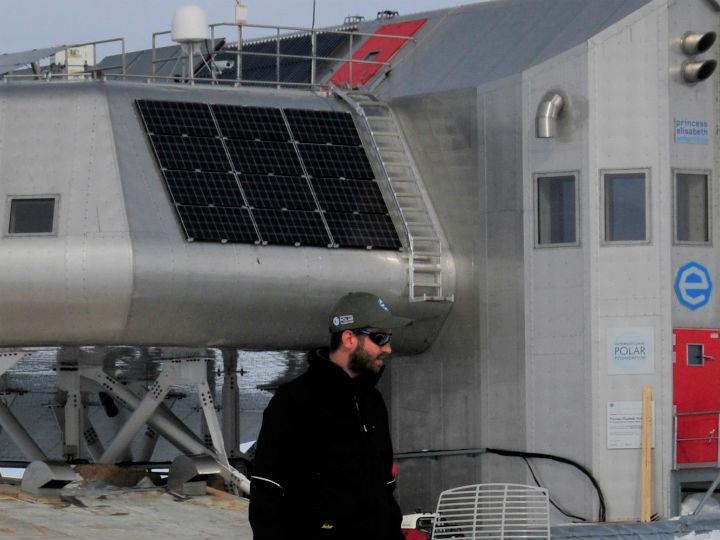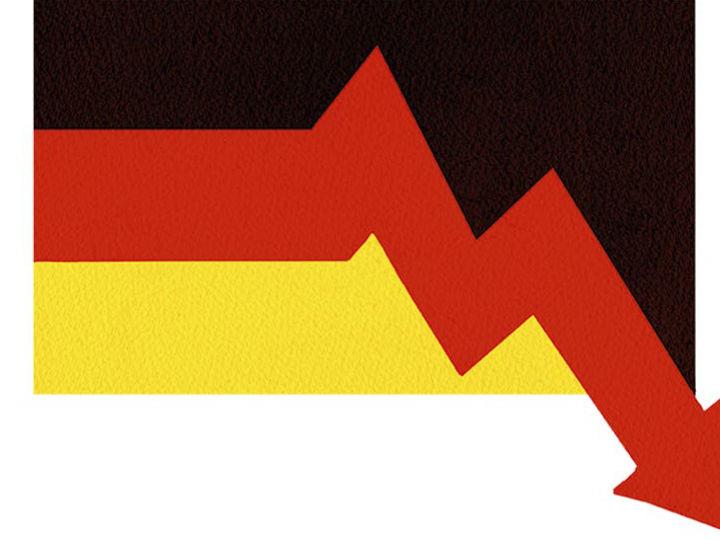by Rein van Gisteren*
Guus Luppens (33) is celebrating New Year’s Eve on the Arctic: optimising the operation of the solar panels, wind turbines and batteries that keep the Elisabeth Polar Base running. It is a zero emission base: there is no electricity or gas. The fact he does not have those connections at home in Belgium is less obvious. Reason for an interview. Not at one and a half metres, but at a safe distance of 14,000 kilometres.
GL: "Since, of course, we do not have a public electricity network here, my job as the main person responsible for the electricity network, is to guarantee a stable energy supply. Our Belgian base is designed as a zero emission concept. The 300 solar panels and 9 medium-sized wind turbines ensure that the 16-tonne heavy batteries receive enough power to provide us with renewable energy. From all over the world our base is known for its very interesting location for research and our good care. The zero emissions story is, of course, a big plus."
Q: It’s not your first polar voyage…
"Climate change is something that is manifesting itself relatively slowly in terms of a lifetime. My interest in that theme has increased enormously. In the evening, we sit around the table with scientists from all over the world and get to work until late at night. At the end of their stay they often give a short presentation, where our whole team listens with great interest to the purpose and results of their research mission. The polar regions are the first to react to a changing climate and that is why we are here. What is happening here is a forerunner of what awaits us elsewhere in the world, and on that we can base our simulation models. And then your mouth falls open with amazement... because it’s really going in the wrong direction."
Q: Global warming, CO2 emissions,what motivates you? You’re not at home for New Years Eve...
"I have a very strong interest in all that has to do with renewable energy production and its storage, and I’ve been working on it professionally for about twelve years now. This pool base is one big playground for me in that respect! (laughs). Initially, that was the motivation for me to join the team. Later it became clear to me that the work done there is also enormously important for securing our future and certainly that of our children. The consequences of our climate crisis are still underestimated to this day. For the EU, the rise in sea levels will not yet have a direct impact, but if you know that some 200 million climate refugees are expected by 2050, then the loss of a stretch of beach, or the fall in the value of your appartment at the sea will really not be the main concern.
The hard figures that these scientists are putting back on the table year after year - through research on our basis - should convince our politicians to take drastic measures as a matter of urgency to stop consuming fossil fuels. Because that is what this is all about for the most part.
Q: Is a solar installation like the one you have in your super-insulated house with your own battery in Belgium also feasible for others? Or is that still only possible today for wealthy people and technicians?
"Today, generating your own energy is actually a no-brainer. The technology and its prices have evolved exponentially in the right direction, making it always cheaper than buying your energy from a supplier. Our "off-grid" house near Brussels was a proof-of-concept to demonstrate in an extreme
way that the technology is ready to be completely self-sufficient in your energy needs, without any negative impact on our environment and climate. In fact, in this way we keep our money in our own economy and do not send it to countries with dubious regimes that we would rather not support. Think of oil, gas, uranium..."
Q: What would you advise us as citizens to do?
"Keep putting great pressure on the policymakers and let your money talk. Don’t leave your savings with a bank that invests in fossil fuels, invest in thorough insulation and generate your own renewable energy or co-invest in cooperative projects such as our local energy cooperative Druifkracht.
Furthermore, for a country like Belgium, without gas or oil sources, but with a lot of technological know-how, the energy transition really only has advantages to offer. We would be foolish not to make full use of them. It is the big levers that we need, because with the small bits we will be too late. Doing nothing will always cost more.”
*publicist and communication adviser




 By: N. Peter Kramer
By: N. Peter Kramer

